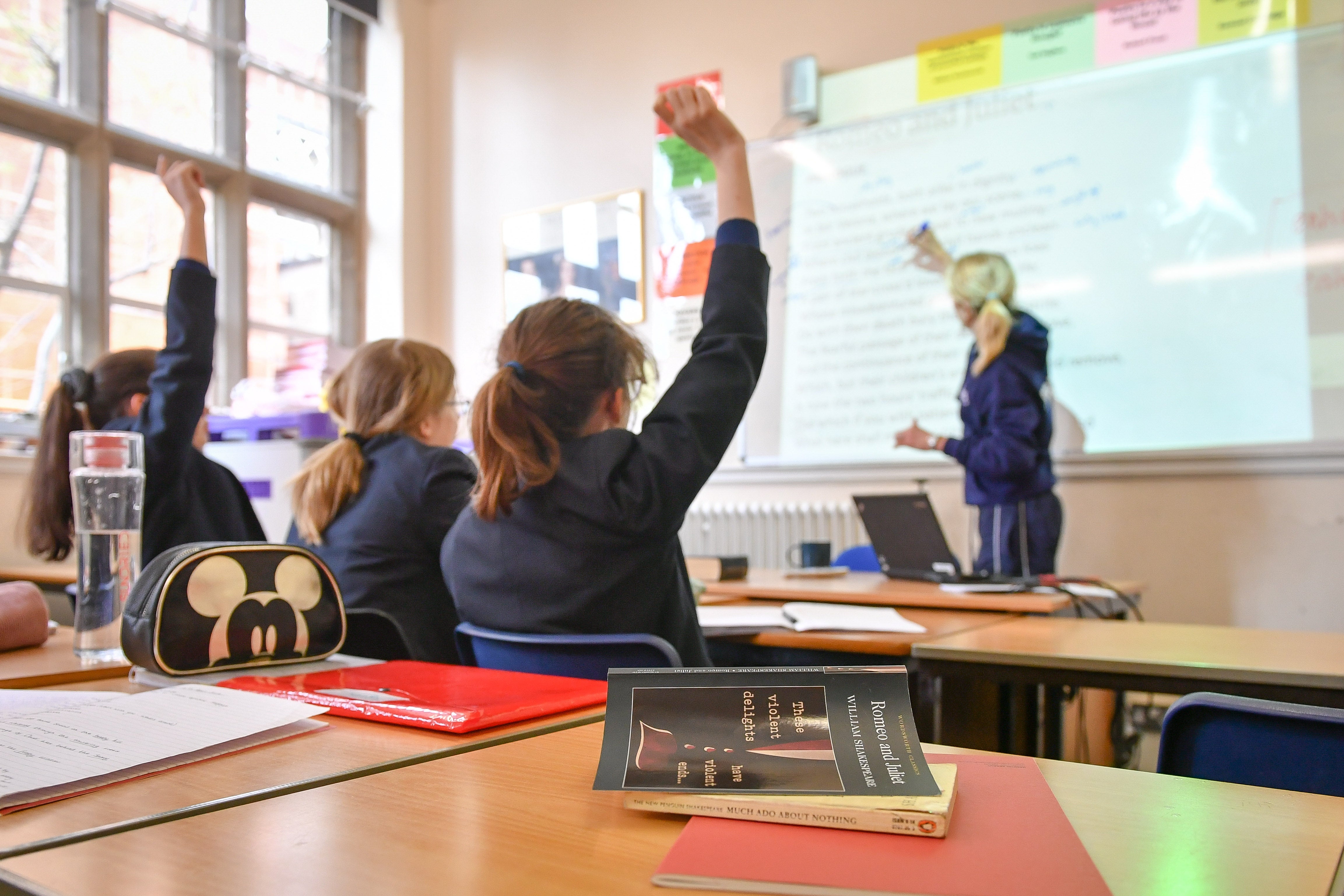Anyone remember educational catch-up? The government seems to have forgotten all about it
Rarely can a huge policy agenda have slipped so far so fast. Almost nobody in government wants to discuss catch-up, and most would rather the issue faded into distant memory


Your support helps us to tell the story
From reproductive rights to climate change to Big Tech, The Independent is on the ground when the story is developing. Whether it's investigating the financials of Elon Musk's pro-Trump PAC or producing our latest documentary, 'The A Word', which shines a light on the American women fighting for reproductive rights, we know how important it is to parse out the facts from the messaging.
At such a critical moment in US history, we need reporters on the ground. Your donation allows us to keep sending journalists to speak to both sides of the story.
The Independent is trusted by Americans across the entire political spectrum. And unlike many other quality news outlets, we choose not to lock Americans out of our reporting and analysis with paywalls. We believe quality journalism should be available to everyone, paid for by those who can afford it.
Your support makes all the difference.There was a time, very recently, when post-pandemic educational catch-up was front-page news.
Less than a year ago we were told time and again by ministers – including Boris Johnson – that making sure no young person was left behind because of learning lost due to lockdown would be the next supreme national effort. Not anymore. Rarely has a huge policy agenda slipped so far, so fast. Now, almost nobody in government wants to discuss catch-up, and most would rather the issue fade into distant memory.
Speaking in February last year, upon the appointment of his new catch-up tsar, Sir Kevan Collins, the prime minister said he was “absolutely determined that no child will be left behind as a result of the pandemic”, adding, “our top priority is to get schools open again and once they are, we will make sure that teachers and students are equipped with the resources and the time they need to make up for lost learning”.
You probably won’t need telling what happened next. Sir Kevan prepared a plan, costed it, was told it wasn’t going to be adopted, and promptly resigned. This was a narrative arc – from an abundance of prime ministerial enthusiasm to the treasury deciding there was no money left – that took just four months to unfurl.
Despite this, we were told, almost by way of compensation, that the government would still invest heavily (to the tune of £200m) in tutoring to help children who had fallen the most behind because of Covid. Research has shown time and again that one-on-one and small group tutoring is the most effective way to help children catch up with their peers. At least there was this.
But in the last couple of weeks, we have found out that this too risks becoming another (to be charitable) damp squib. The National Tutoring Programme is badly underperforming, only reaching a tiny fraction of the children it is supposed to be helping. Just 52,000 courses have been started so far, which is only 10 per cent of the 524,000 target set out by ministers.
Early this week I witnessed these shortcomings first-hand when I spoke to a group of primary school parents in the West Midlands. None had heard of educational catch-up, and none had been told by teachers about the possible lost learning their children might have experienced during school closures. The parents had no idea about the National Tutoring Programme either.
The sad truth is that most people – possibly including ministers – might rather not talk about it anymore, but the consequences will be felt by this generation of students for years to come. Their life chances will be forever set back unless catch-up is brought back to life.
Evidence shows that this damage is particularly pronounced for those from the poorest homes, with the consequences for social mobility huge. According to the Education Endowment Foundation, the first lockdown alone was likely to reverse a whole decade of closing the gap between the poorest and richest young people. And according to the Sutton Trust, the projected loss in earnings over a 20-year period due to missed learning is £3,830 per year for young men from low socioeconomic backgrounds, and just £1,150 for those from high socioeconomic backgrounds.
To keep up to speed with all the latest opinions and comment sign up to our free weekly Voices newsletter by clicking here
It is not too late to do something about it. There are ways of fixing the National Tutoring Programme. Education secretary Nadhim Zahawi, who is making it his business to be a breath of fresh air compared to predecessor Gavin Williamson, could try to reinject some life into catch-up. It could play to his delivery strengths in the same way the vaccine roll-out did when he was vaccination minister. But that will cost money.
Educational catch-up is a social justice issue – the government cannot be allowed to let it drift away. We might desperately want Covid to become a thing of the past – but dealing with the educational consequences must be a priority here and now, or we will all live to regret it.
Ed Dorrell is a director at Public First
Join our commenting forum
Join thought-provoking conversations, follow other Independent readers and see their replies
Comments